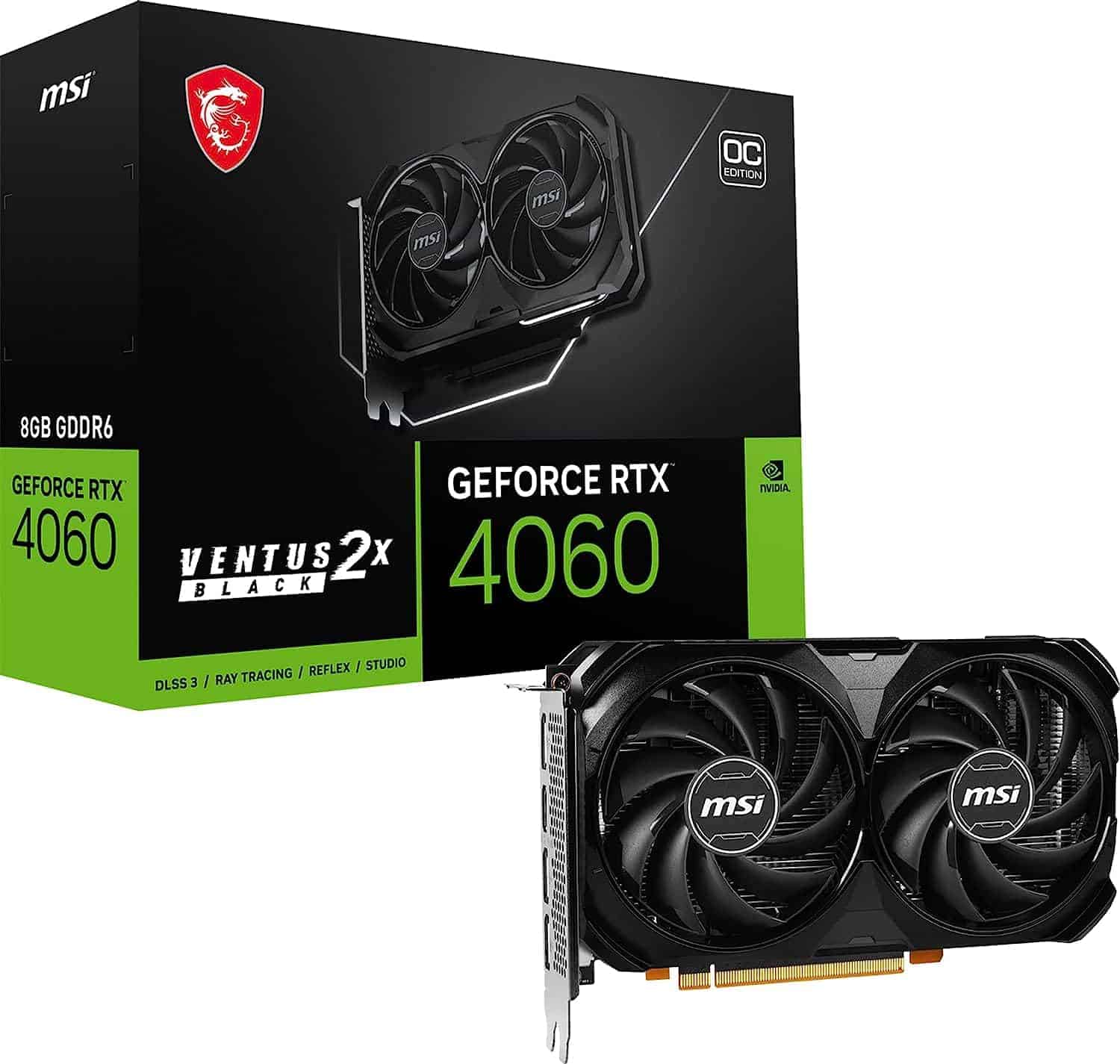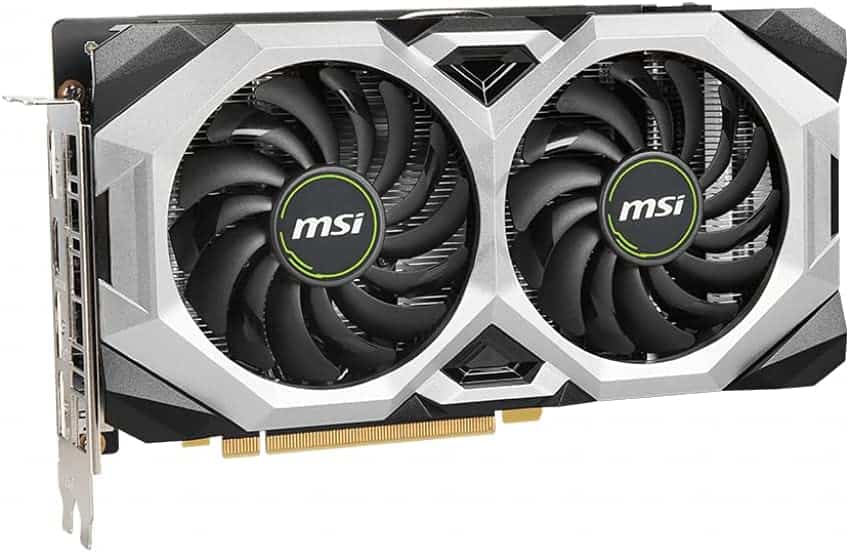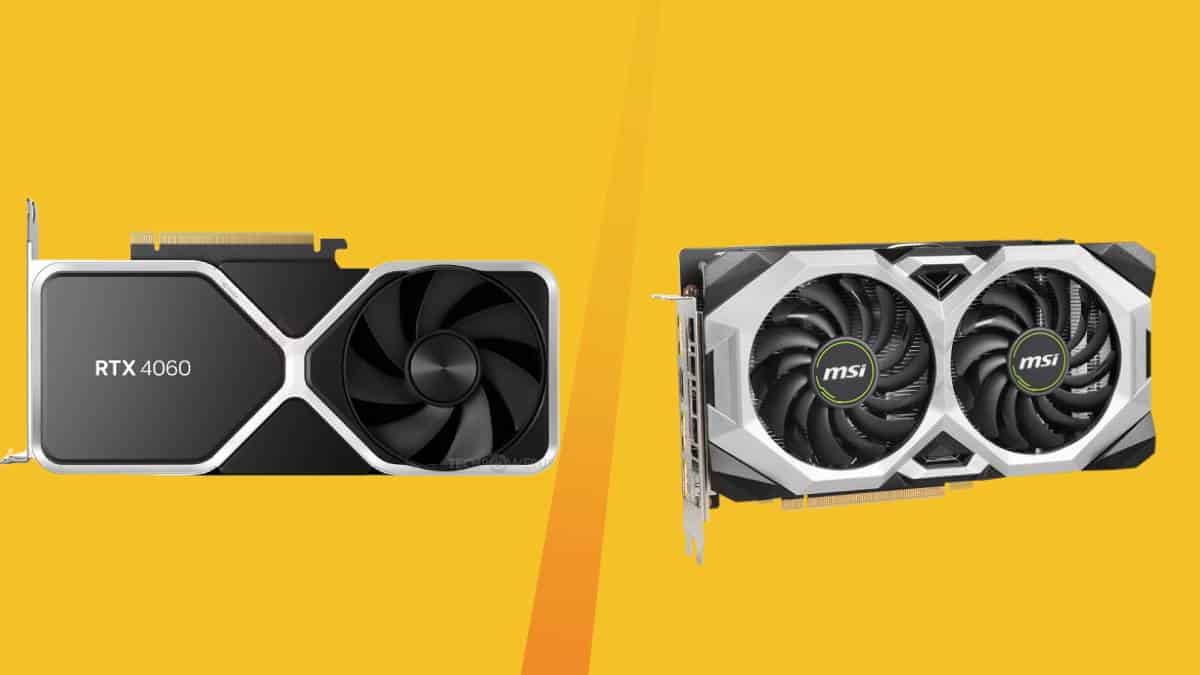You can trust VideoGamer. Our team of gaming experts spend hours testing and reviewing the latest games, to ensure you're reading the most comprehensive guide possible. Rest assured, all imagery and advice is unique and original. Check out how we test and review games here
Let’s compare the RTX 4060 against the RTX 2060, ahead of the impending launch.
The RTX 4060 is the cheapest entry into the RTX 40-series graphics cards, for now. Following on from the recently launched RTX 4060 Ti, the 4060 specs aren’t too dissimilar. However, with nearly $100 difference between the two, the price of the latest Nvidia release is looking pretty attractive.
The RTX 2060 launched way back in 2019, but still holds up pretty well with ray tracing and DLSS. Turing architecture, though outdated by Ampere and Ada architecture now, was the first series to herald the RTX name. Bringing ray tracing into the hands of hardware enthusiasts was a revolutionary move, though the card has since been discontinued by Nvidia.
It’s not dead yet though, as it’s still possible to pick up from major retailers Amazon and Best Buy, while also being available second-hand from a range of other sources. If you’re teetering between the RTX 4060 and the 2060, we’re going to dig deep into comparisons between price, specs, and performance. Let’s get into it.
RTX 4060 vs RTX 2060 – architecture
The RTX 4060 is powered by the latest Ada Lovelace architecture, while the 2060 runs on the older Turing configuration.
Ada architecture runs using fourth-generation Tensor Cores and third-generation RT Cores. The Tensor Cores allow for a much-advanced version of DLSS to run: DLSS 3, which utilises AI to upscale frames to higher resolutions while allowing frame rates to climb simultaneously. The RT cores also allow for real-time ray tracing, with huge increases over previous generations.
On the other hand, Turing architecture features the original generation of Tensor Cores and RT Cores, which while providing powerful performance, don’t really compare to the Ada architecture rendering cores. However, DLSS and ray tracing are all possible on Turing graphics cards, so you’re still going to be gaming with great performance.
RTX 4060 vs RTX 2060 – specs
| RTX 4060 | RTX 2060 | |
| Architecture | Ada (TSMC, 4nm) | Turing (TSMC, 12nm) |
| CUDA cores | 3,072 | 1,920 |
| Base Clock (MHz) | 1,830 | 1,365 |
| Boost Clock (MHz) | 2,460 | 1,680 |
| Memory | 8GB GDDR6 | 6GB GDDR6 |
| Memory Bus | 128-bit | 192-bit |
| Memory Bandwidth | 272.0GB/s | 336.0GB/s |
| Total Graphics Power | 110W | 160W |
Upon first glance, there’s not a huge difference between the specs of the RTX 4060 and the RTX 2060, however, with the prior discussion on architecture in mind, there’s actually going to be a very, very noticeable difference in performance.
RTX 4060 vs RTX 2060 – performance
So what do the RTX 2060 and RTX 4060 specs mean for their respective performances? While for other comparisons with the RTX 4060, we have had to infer possible performance by looking at its specs, we can actually be more precise here, courtesy of the graph below, produced by Nvidia itself.

Here you can see exactly how the performance of the RTX 4060 compares with previous cards. We can see that it averages a performance that is 1.6 times better than the RTX 2060 in normal gameplay, and that jumps up to a performance twice as good when DLSS 3’s frame generation is enabled.
The baseline performance of the RTX 2060 are frame rates of around 60-90FPS at 1440p and it can even break through the 100FPS mark at 1080p. This means the RTX 4060 is surely shaping up to be one of the best GPUs for 1080p.
RTX 4060 vs RTX 2060 – price
Price manages to be perhaps the most important spec, despite having no impact on performance whatsoever. If fact, it can easily be a determining factor. The good news is that both of these are on the lower end of things, in fact, both are among the best GPUs for under $500.
The RTX 4060, for example, has an MSRP of $299, a good shade cheaper than the next most affordable Lovelace GPU. You can find out where to buy the RTX 4060 here.
The RTX 2060 launched with a slightly higher price of $349, though this has fluctuated in the years since it dropped. It can now actually be quite hard to find an RTX 2060 out there that is not renewed or second-hand which will obviously lowers the price.
MSI Gaming GeForce RTX 4060

Base Clock
1830MHz
Boost Clock
2460MHz
VRAM
8GB
Recommended PSU
300W
MSI Gaming GeForce RTX 2060

Base Clock
1,365MHz
Boost Clock
1,695MHz
VRAM
6GB GDDR6
Recommended PSU
550W
Dimensions
231 x 43 x 127mm
Final word
When considering the RTX 2060 vs RTX 4060, there are two different angles to take. If you are looking at the two cards with the intention of buying one, the decision is pretty simple. The RTX 4060 offers you significantly superior performance, up to twice as good in fact with frame generation enabled.
However, if you have the RTX 2060 already and are wondering whether this is the right card to upgrade to, the answer is less objective. If you are a budget-conscious gamer, the RTX 4060 will offer you an improvement in performance for less than $300. However, the step up is not huge. If you are looking for a significant change in gaming power, it could be worth considering the best RTX 4070 card.
Image credit: Nvidia






